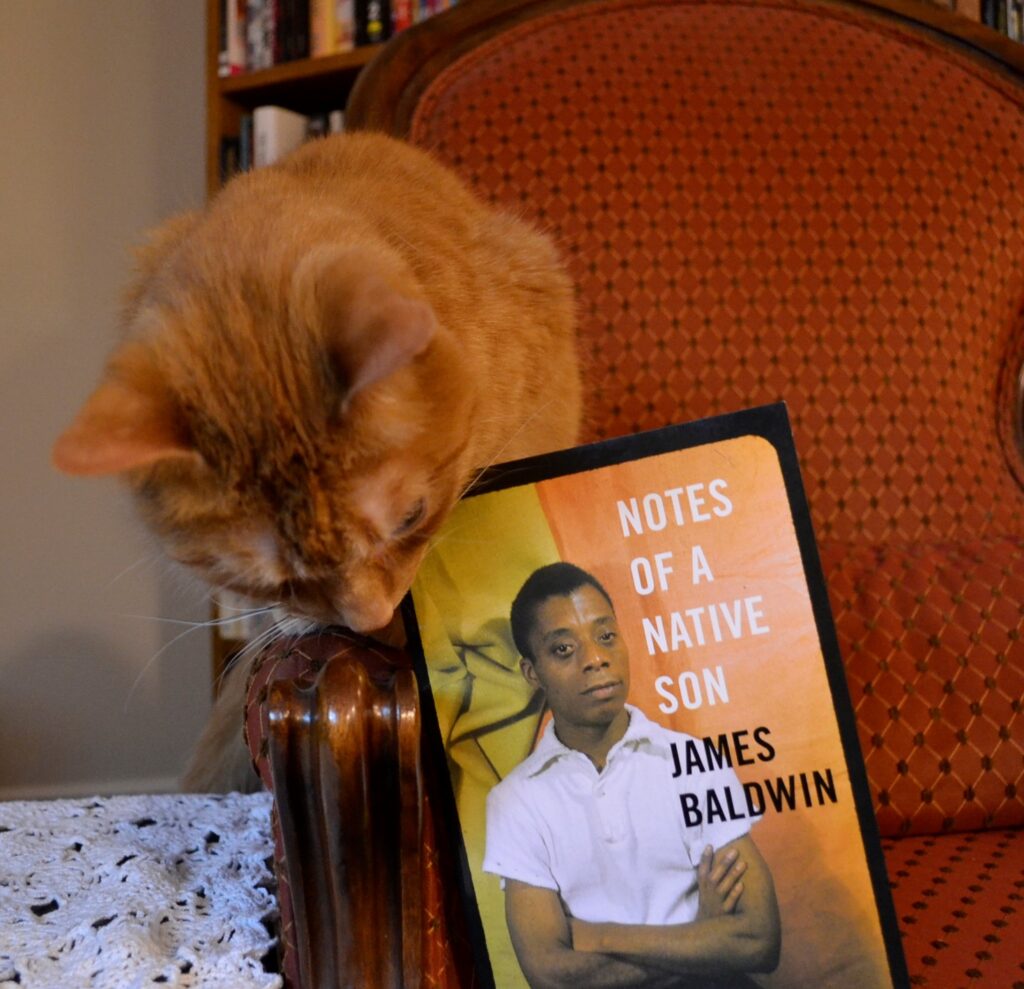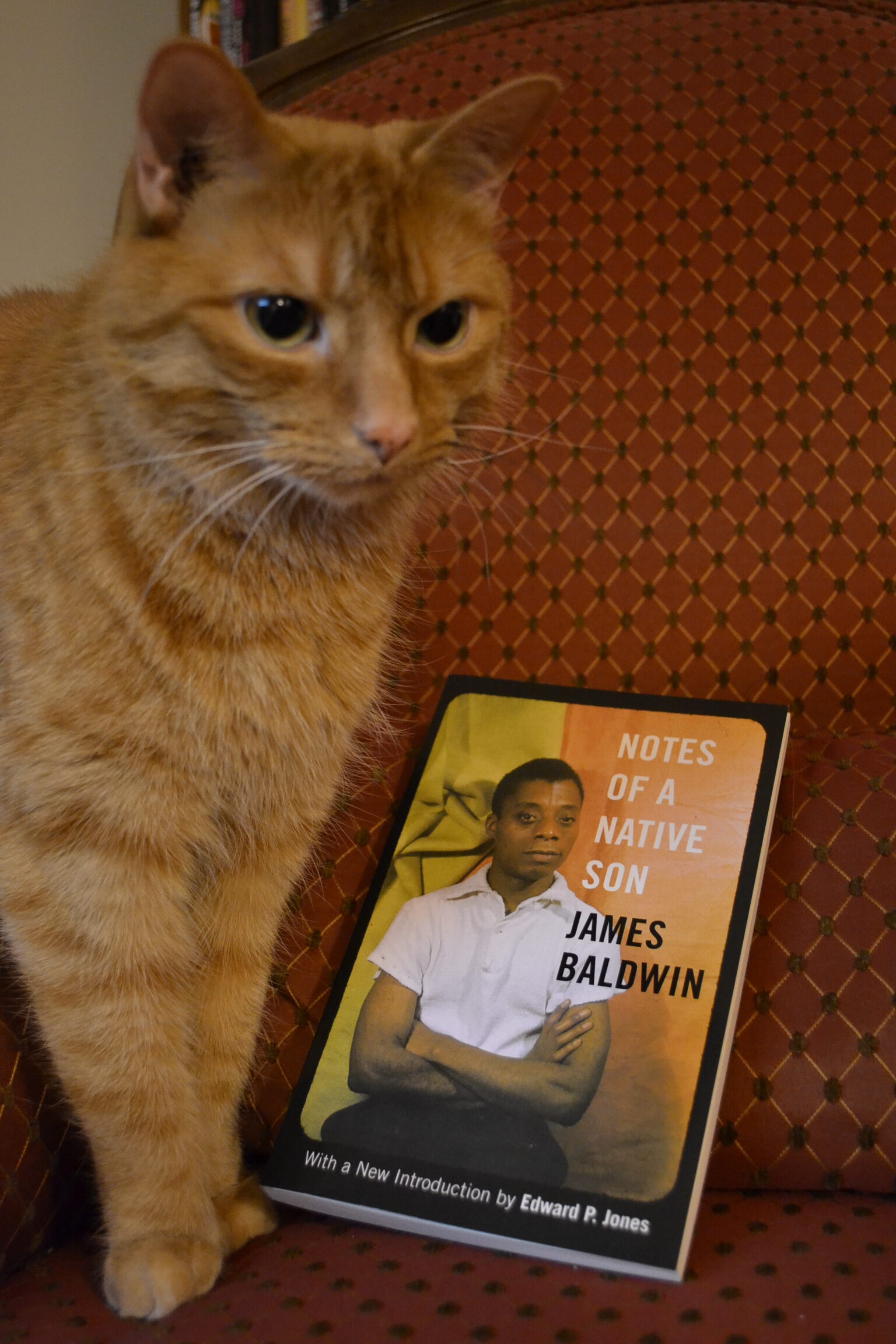Saturday Mornings
I usually write posts on Saturday mornings, partly because it feels like I finally have time after a busy work week, but mostly because it feels like a good day for thinking about art. It’s on Saturdays that my lovely spouse and I binge watch old television or the films we love. This week we’re watching some Criterion, specifically Laurence Olivier’s Richard III. Criterion also has Dick Cavett’s interview with Olivier that I might watch later as well.
Dick Cavett is experiencing a bit of resurgence I see, which I find particularly amusing. Why? Well, I first encountered Cavett and his style of interviewing as it was satirized by Rick Moranis on SCTV. I didn’t actually see a recording of Cavett himself until much later, and that made the satire even more hilarious than it was on its own.
That was perhaps a long tangent, but it illustrates one of the best parts of Saturday. It’s the day that I can let my mind wander without having to drag it back to a work task or out on errands. It’s a break I sorely need, especially considering just how busy we’ve been of late.
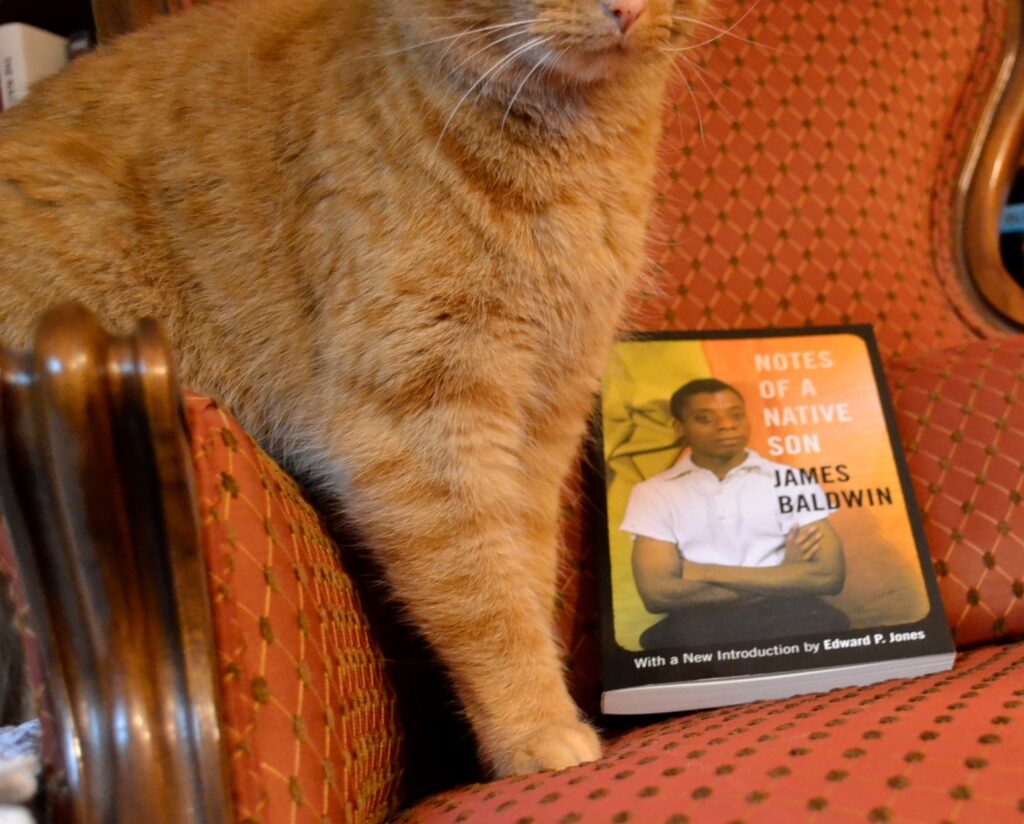
Essays in General
Sadly, I think most of our experience of essays becomes a bit tainted by our experience of them in high school and post-secondary education. Many people hate writing them, and therefore the idea of reading them in leisure time seems initially preposterous. At least, that’s how it was for me — especially while I was in school. I craved stories and the imagination of literature. I wanted an escape from reality instead of an analysis of it. For essays are essential an exploration of the moment in which they are written, whether they are looking back from it or forward to the future in front of it.
In James Baldwin’s Notes of a Native Son, he is doing both of those things with various essays. He is also analyzing the experience of growing up Black in an America that is unapologetically and systematically racist and divided. He does this both through talking about his past experience, reviews of literary works and film, and his writing about his time and experience of Europe in relation to America. His words capture a dire immediacy, as in he is living in a moment that needs to change, that is precariously balanced on the edge of a precipice.
Literature and narrative prose can also be momentary in nature, but it needs time to develop. An essay can cut to the quick of an issue in a way that longer prose works needs more words and structure to do. The power of a masterful essay is truly matchless.
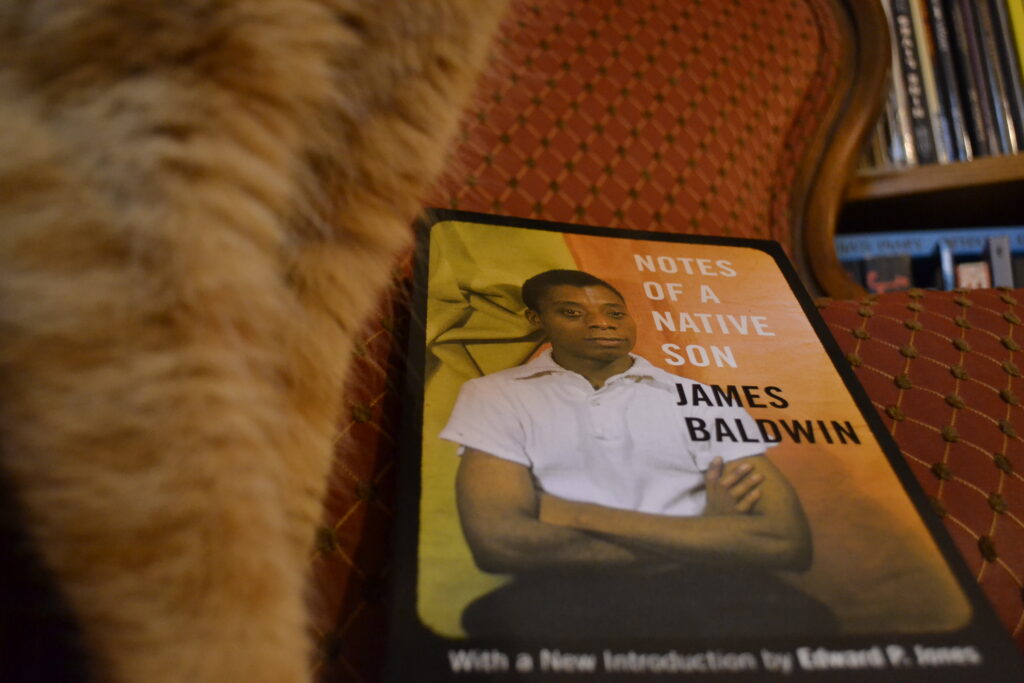
The Master Essayist
James Baldwin is easily my favourite essayist. Every essay is a painstakingly, achingly beautiful construction of argument. From word choice to phrasing, he has a way of driving to the point, but also doing so with a biting simplicity. He states facts elegantly and brutally and is anything but vague. I have seen some essayists rely on complex sentence structure and an ambivalent tone to create an air of authority through objectivity. Baldwin creates a sense of authority through experience and through a completely honest recounting of it with all of the emotion he felt. Rage. Sorrow. Baldwin does not divorce his feelings from the issue at hand. However, he doesn’t let that emotion render his argument clumsy or inarticulate. Instead, it makes it weighty and powerful. It makes the reader listen and think. It makes Baldwin’s words linger in your mind.
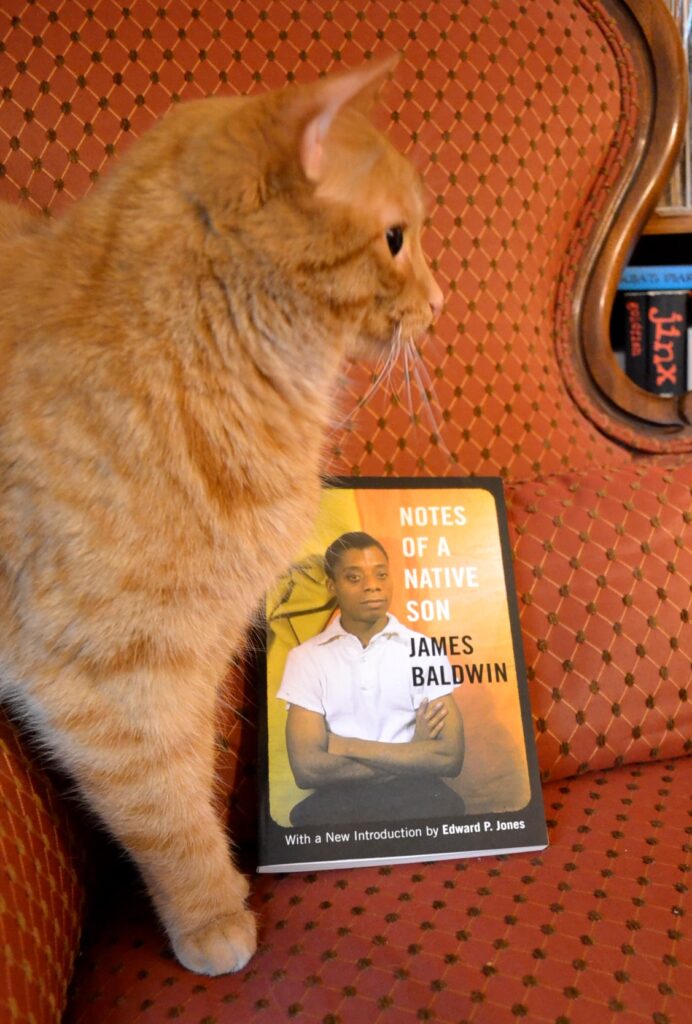
On a sentence level his construction of words and phrases are magnificent. My lovely spouse and I have started a commonplace book and a lot of entries are from Baldwin. Frequently I will be reading his essays and will scramble to record a phrase that I know I have to record and memorize because it is so powerful. Or beautiful. Or even amusing.
If you have not read any of Baldwin’s essays, I would call them essential reading. Run, do not walk, to your local library or independent bookstore.
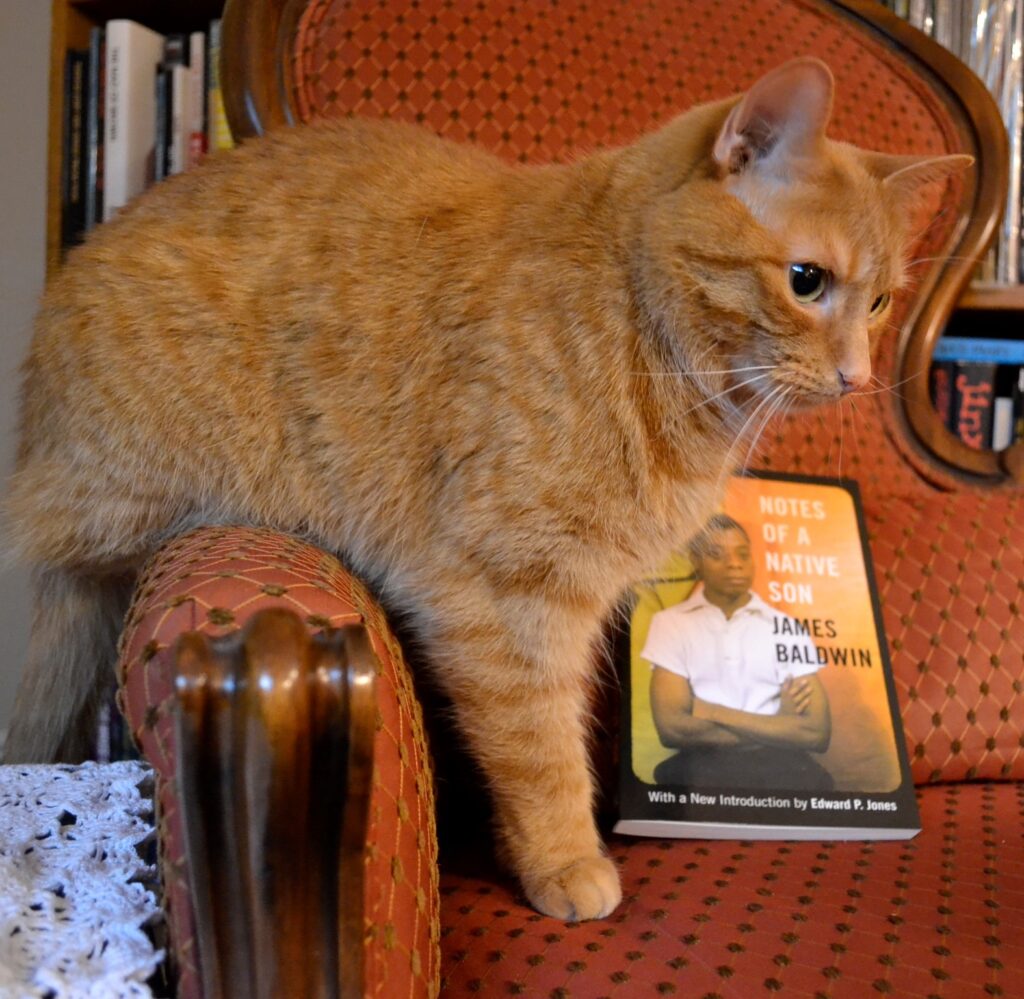
Particular Favourites
It’s hard to pick a favourite essay in this collection, so instead I’m going to discuss one from each of the three parts.
From part one, I loved Carmen Jones: The Dark is Light Enough. It’s a review of the 1954 film starring Dorothy Dandridge and Harry Belafonte which is a modernization of Bizet’s classic opera Carmen. Baldwin hated the film, and his review is savage and scathing in all of the most amusing ways. But it is also a discussion of the racism inherent in the Hollywood machine and the horrible depiction of Black people and Black culture in 1950s film.
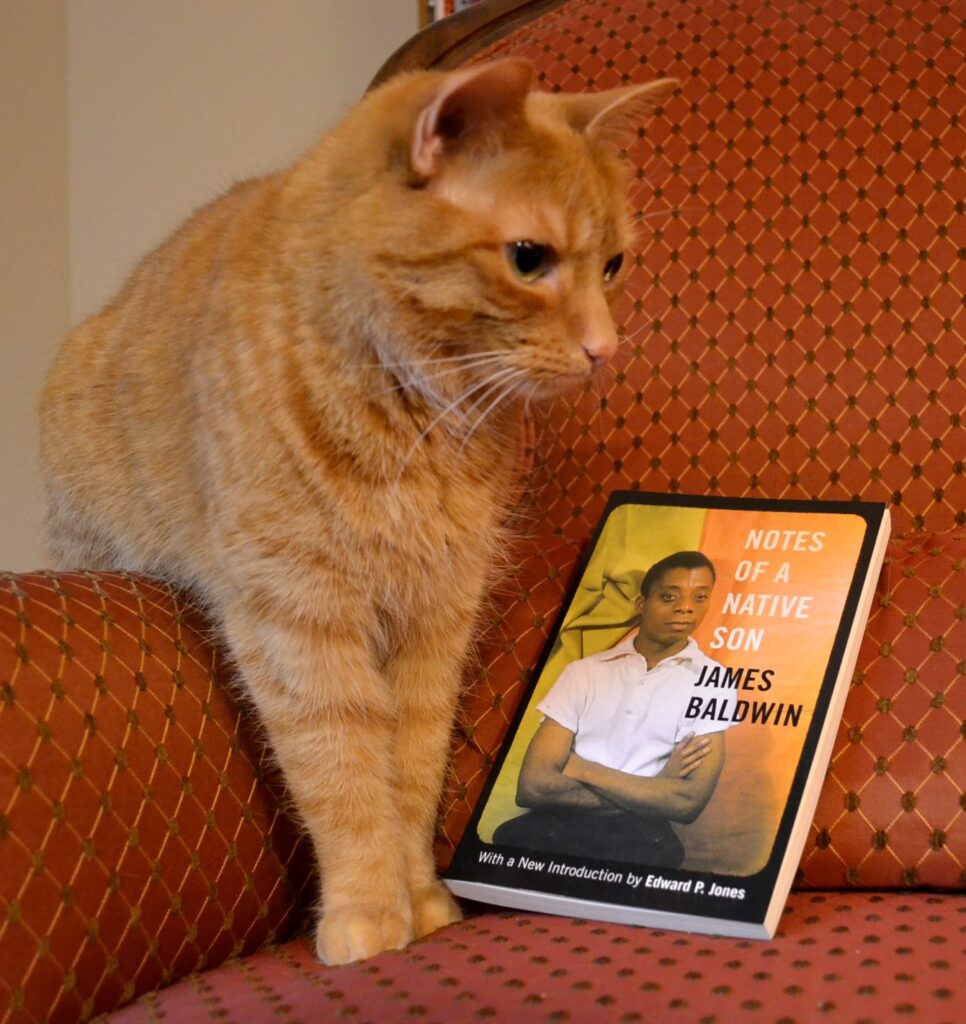
Part two contains the titular essay Notes of a Native Son, which might be the best of the collection. In it, Baldwin discusses his conflicts with his father and America in general. How he feels alienated from both on the basis of race and identity. He describes his personal struggles with a deeply racist society, and the constant conflict of being Black in a country that rejects Blackness. He ends up leaving for France but is irrevocably tied to his roots and wanting better for his family, himself, his race, and his country so that no one else feels as lost and as angry and hurt as he did.
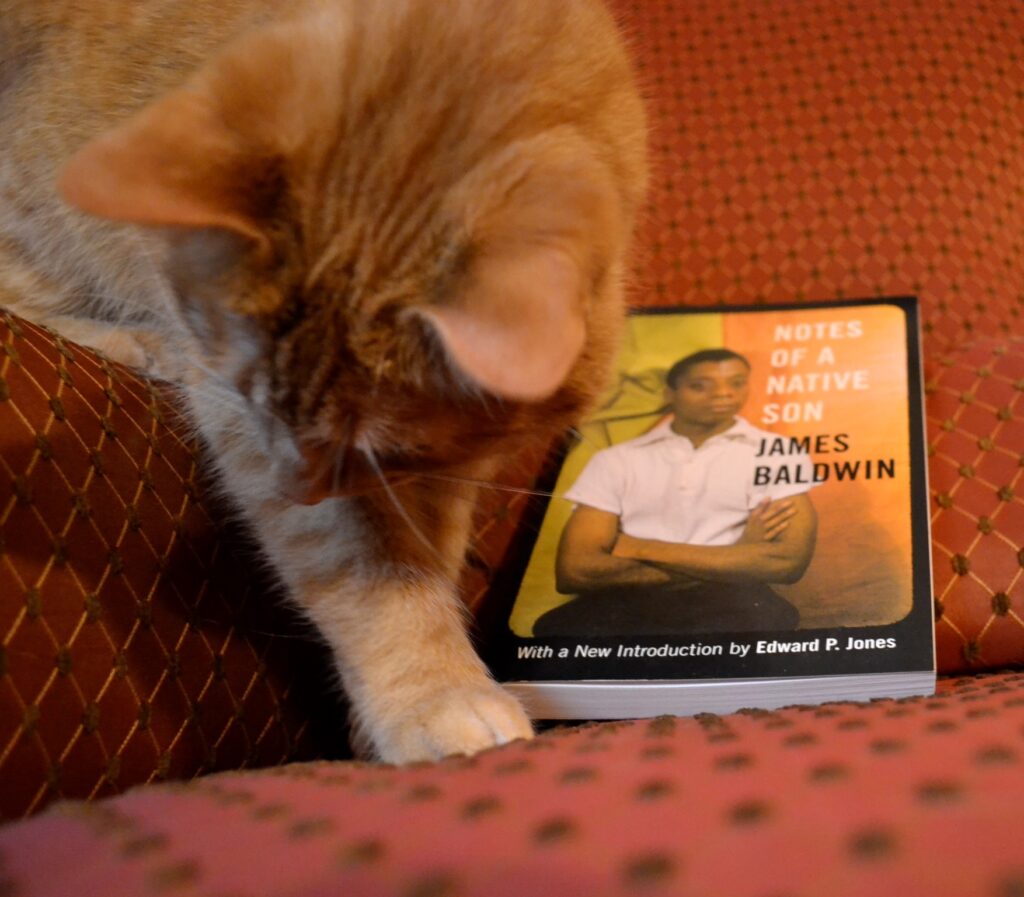
Part three collects essays that have to do with Baldwin’s experiences with living abroad. Equal in Paris is easily my favourite here, as Baldwin recounts his arrest and time in prison awaiting trial. There’s a raw honesty here and a vulnerability that is captivating and resonates across time and well beyond the moment in which it was written.
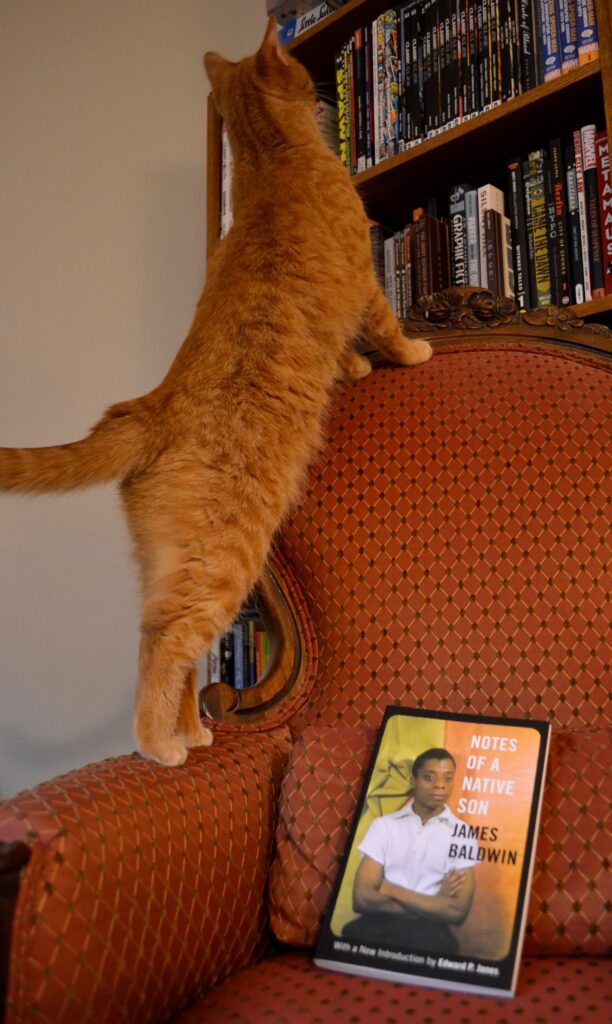
Watching Her Knit
My lovely spouse also uses Saturdays to let her mind wander. Most of the time, she picks up the sewing or crafting project she’s had to let sit idle for the rest of the week. Today, she’s working away at a shawl she’s spent the last two years on. The weight of three balls of yarn that has been painstakingly turned into beautiful lace and then also beaded as well lays on her lap as I watch her fingers deftly weaving.
I don’t craft, but I love to watch her do it. She’s so talented and she has the patience to master any skill she tries. It’s always magical to watch the raw materials become something so different under her hands. Lately she’s been working on macramé and I know there are wall hangings, belts, and some table coverings in our near future.
